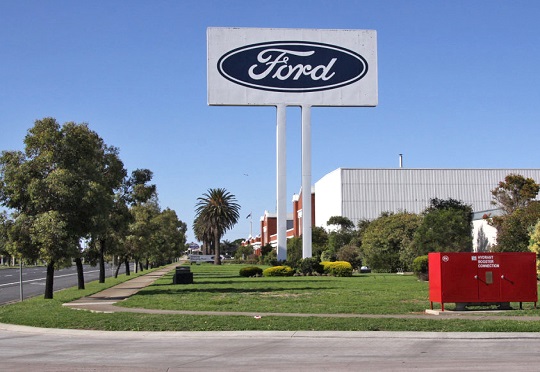American automaker Ford Motor will invest $1.05 billion in its South African manufacturing operations, the firm announced on Tuesday, and expand production of its signature brand, the Ranger pickup truck.
The investment aim to increase Ford’s installed capacity in South Africa from 168,000 to 200,000 vehicles, said Andrea Cavallar, operations director of Ford’s International Market Group.
“It’s the biggest investment in Ford’s 97-year history in South Africa and one of the largest ever in the local automotive industry,” he told an announcement event.
Ford joins global carmakers including Volkswagen, Toyota and Nissan in ramping up production in Africa, viewed by the industry as a large, untapped market for new car sales. Around a third of Ford’s local production is sold in South Africa and other sub-Saharan African countries, with the rest exported elsewhere.
Ford’s South African investment includes $683 million for technology upgrades and new facilities at its plant in Silverton, a suburb of the administrative capital Pretoria, and $365 million to upgrade tooling at major supplier factories.
The plant will also manufacture Volkswagen pickup trucks as part of the Ford-VW alliance.
The expanded production will create 1,200 jobs with Ford in South Africa, increasing the local workforce to 5,500 employees, while adding an estimated 10,000 new jobs across the carmaker’s supplier network.
Africa’s most industrialized country has set its eyes on the manufacturing industry to revive economic growth and reduce unemployment, especially now that the economy is under record levels of recession.
Speaking at Ford’s announcement, South African President Cyril Ramaphosa said the company had already helped to bring 12 automotive component suppliers to the country.
“Ford Motor Company is like a beautiful flower and it has attracted all these wonderful bees that keep coming here,” he said.
The government’s plan targets a more than doubling of the industry’s annual production to 1.4 million vehicles by 2035 and raising the proportion of auto components made locally to 60% from 39%, supported by investment and tax incentives.
The goals have been dealt a blow by the COVID-19 pandemic, however, with both local sales and exports down by around 30% last year.
Ford also aims to make its plants entirely energy self-sufficient and carbon neutral by 2024, Cavallaro said.

